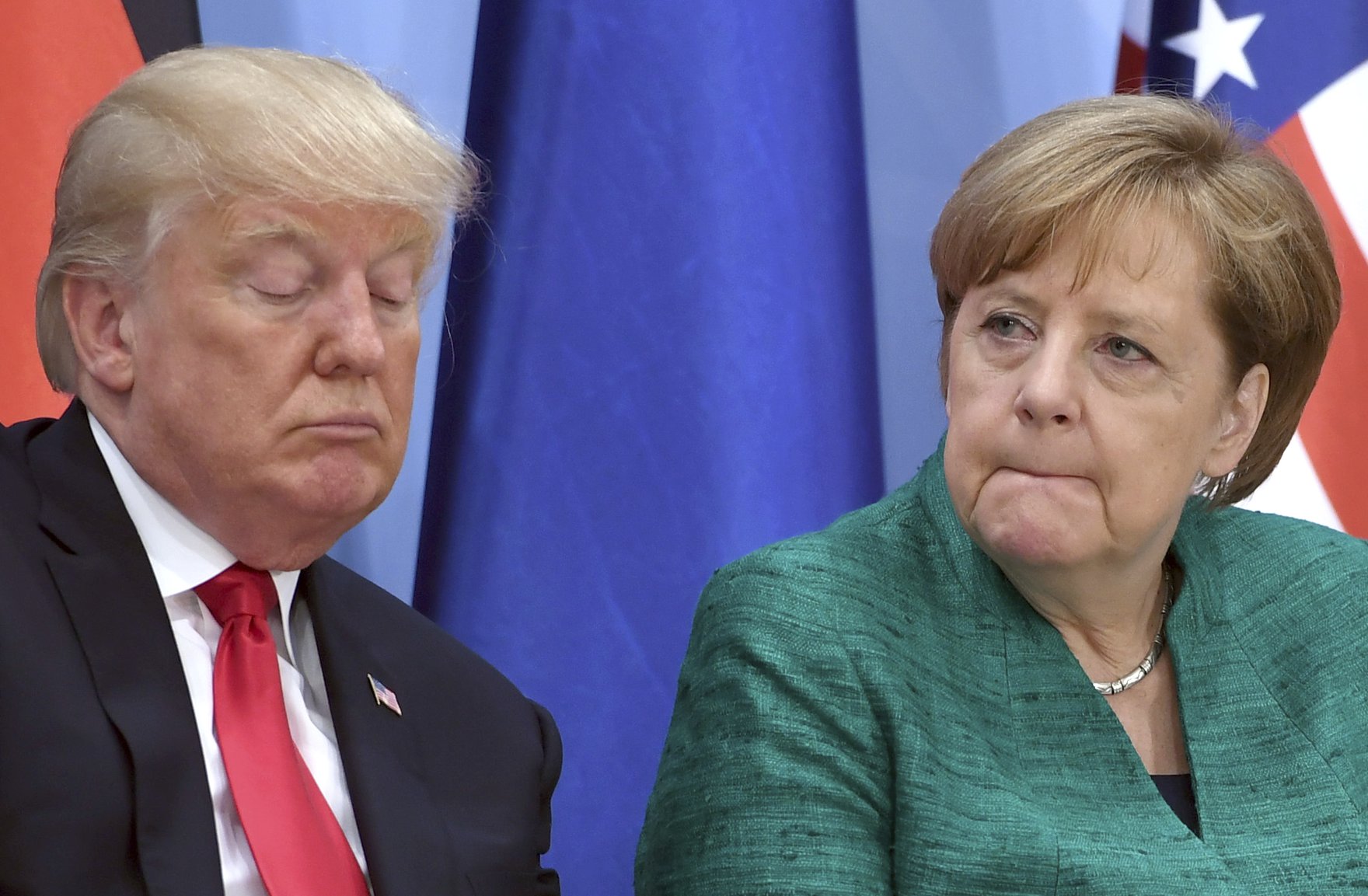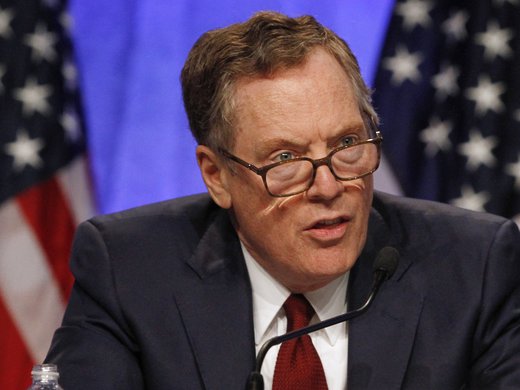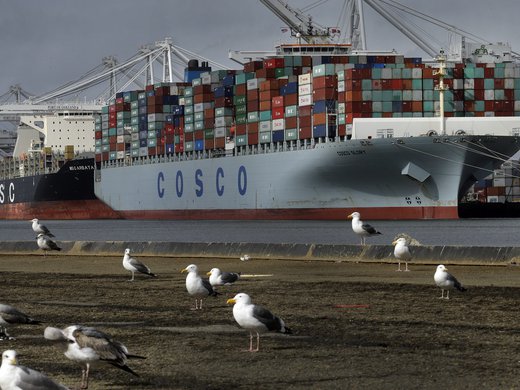Donald Trump isn’t always wrong. His administration correctly determined that Germany’s massive trade surplus is a problem. Too bad the US president seems destined to make things worse.
Germany’s stubborn adherence to tight fiscal policy has been robbing the world of economic growth for years. The most recent evidence arrived via the International Monetary Fund’s (IMF’s) latest review of the current-account balances of the world’s 29 largest economies. Germany stands out as the guiltiest of a small group of guilty parties, as it has pulled away from China atop the table of the world’s biggest trade surpluses. The contest no longer is even close: China’s surplus shrank to 1.7 percent of GDP in 2016 from 2.7 percent the previous year, while Germany’s was 8.3 percent of GDP last year, compared to 8.6 percent in 2015.
The numbers are incredible, especially since Germany produces no oil; the country is enriching itself on the back of its hypercompetitive makers of high-end goods. There is nothing wrong with that, except the country is using too little of its international winnings to encourage domestic spending that would boost demand for imports. German officials mock profligacy, yet they tend to deny the extent to which their export-based economy is dependent on the free spending of others.
“We don’t necessarily see Germany’s surplus as a threat to the global economy,” said Luis Cubeddu, one of the lead authors of the IMF’s imbalances report. “We are of the view that part of the surplus of Germany is excessive and higher than desirable and that there are policies that Germany should put in place for its own domestic interest to reduce that surplus. And by reducing that excessive surplus, it would have positive spillovers on the global economy.”
Germany isn’t a classic mercantilist state. Its strength lies in a determined commitment to competitive wages, innovation and training. (A relatively weak euro since the financial crisis helped, too.) So there is a Darwinian aspect to Germany’s export success. Still, the country’s economic policy looks predatory. Chancellor Angela Merkel’s government has never seemed to care. That attitude has always risked a clash with a big-deficit country that sees the world equally as bluntly.
Enter Trump. The United States’ displeasure with German economic policy started under President Barack Obama. But the Obama administration generally was diplomatic about it. The new president has little interest in diplomacy, and no regard for any responsibility the United States might have in the lopsided nature of the flow of goods, services and capital between the world’s major economies. Rather than have a nuanced discussion about global imbalances, Trump, it seems, would simply deny his citizens access to BMWs. “Look at the millions of cars they’re selling in the US. Terrible. We will stop this,” Trump said when he visited Europe in May.
To be sure, it is getting difficult to take anything Trump says seriously; even men and women who serve at his pleasure are beginning to ignore him. Still, it probably would be unwise to assume the best from Trump when it comes to trade. He has gone from promising to call China a currency manipulator, to boasting about an “outstanding” relationship with the country’s leader, to berating Beijing for doing too little to stop North Korea from building a nuclear bomb. He has gone from wanting to destroy the North American Free Trade Agreement, to suggesting (at least in terms of Canada) it only needed some tweaks, to unveiling a long list of things he’d like to change during renegotiation.
With Germany, there is little evidence of even a brief honeymoon period: Germany has appeared uncomfortable and hostile from the beginning.
The IMF warned this would happen.
There are several reasons to worry about outsized current-account surpluses and deficits. One of them is the risk of a protectionist backlash. The Trump administration sees global economy through the prism of trade surpluses and deficits. And no country has put more pressure on the US deficit in recent years than Germany: America’s shortfall in trade of goods and services with Europe’s largest economy was 30 percent wider in 2016 than in 2007. That’s more than the 20 percent increase in the US trade deficit with China. Meanwhile, the US shortfall with Mexico shrank nine percent over the same period, and the United States now runs a surplus in shipments of goods and services with Canada.
Germany has plenty of fiscal room to cut taxes or invest more heavily in infrastructure. By refusing to use it, the country was reducing the potential of its own economy and limiting the growth of its neighbours. Now, Germany’s adherence to relative austerity risks a trade war with Trump’s America.
The United States surely would start it, and probably would suffer for it. The IMF report spared some space to explain what would happen if a deficit country initiated protective tariffs against a surplus country. The trade deficit would shrink, but only temporarily. Reduced trade would put upward pressure on the currency, hurting exporters and thus hurting economic growth in the deficit country and the global economy as a whole. Meanwhile, the surplus country, owing to its superior competitiveness, likely would bounce back relatively quickly.
Germans should take little solace in that last part. Their country is talked about as a global leader, yet when it comes to the economy, Germany’s policies are remarkably self-centred. If the country is to play a greater part on the international stage, it must loosen up and spend a little.



